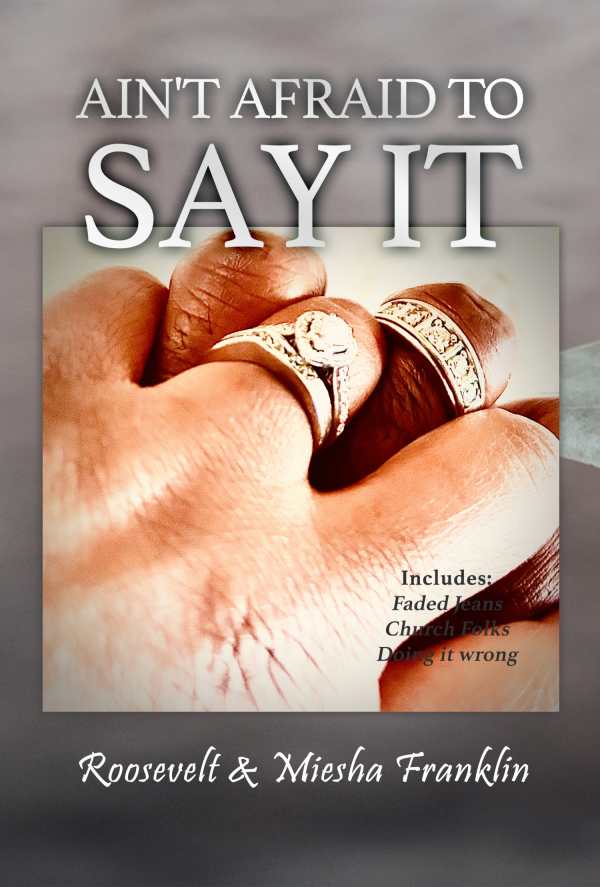Ain't Afraid to Say It
Addressing timeless Christian themes in a colloquial tone, Ain’t Afraid to Say It is a supportive, scripture-based poetry collection.
Roosevelt and Miesha Franklin’s religious poetry book Ain’t Afraid to Say It is about seeking comfort in Jesus and finding one’s true path.
Shining light into metaphorical storms for believers, these poems are concerned with truth and being steadfast despite social pressures and past beliefs. Paragraph-long prose descriptions precede each entry, pronouncing the aims of the poems at length; they are followed by multiple relevant scriptural excerpts. Such prefatory material often matches the length of the poems themselves, though.
Internally, the poems eschew traditional poetic forms and techniques beyond their line breaks and repeating lines, instead focusing energy on their themes. They aim to be definitive as they touch upon aspects of daily life for Christians, addressing faith, marriage as a heterosexual institution, and different social environments. For example, in “My God,” God provides men with what they need to avoid hellish temptations, including women of their own. Such women are idealized:
She is the definition of complete and pure;
molded and designed by the potter’s hands.
His love is within her and consumes her very soul;
given to share in marriage with only this man.
Heterosexual marriage and women’s subservience to men consume too much of the book’s space, though; both concerns become repetitive. Stereotypes arise, as in “Black Woman, Please!” which renders women “the weaker vessel” and urges Black women to remain obedient and true to sensitive men while also singling them out as enablers of unfaithful “thug[s]”:
Black Woman, please!
Shut your mouth.
’Cause those that came before you have already spoken for you.
Still your tongue cuts like the whips on their backs.
Tearing away at the fabric of your strong black man.
Such emphasis on traditional masculinity also recurs, as in “The Man Within,” about the yearning to be free from gendered expectations.
The book’s images and symbols are too often vague. In “The Tree,” for example, a tree, surrounded by blowing grains of sand in a desert, stands strong, resolute, and alone. Whether the tree represents God or the believer is unclear, even when considered against the introduction to the poem, whose scriptural references are tree-free. Further, the scriptural references disappear in the book’s second half without explanation. The poems’ contemporary lingo also clashes with its more timeless themes, as with references to Kool-Aid and Chick-fil-a and the use of “bro,” “ya,” and “homie.”
In the religious poems of Ain’t Afraid to Say It, true guidance comes from God, and marriage and faith are among life’s most important ventures.
Reviewed by
Aleena Ortiz
Disclosure: This article is not an endorsement, but a review. The publisher of this book provided free copies of the book and paid a small fee to have their book reviewed by a professional reviewer. Foreword Reviews and Clarion Reviews make no guarantee that the publisher will receive a positive review. Foreword Magazine, Inc. is disclosing this in accordance with the Federal Trade Commission’s 16 CFR, Part 255.

